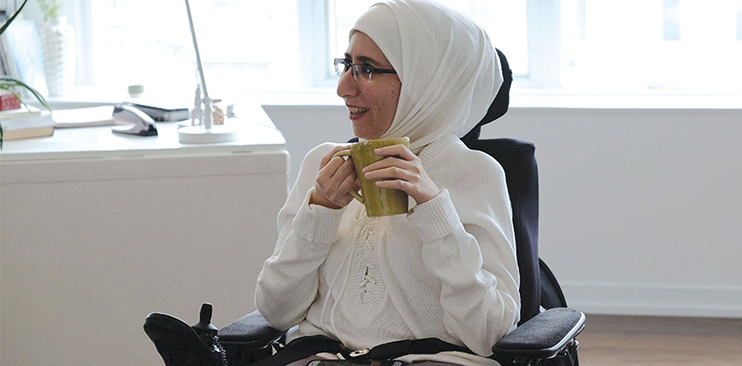As a person who lives with chronic pain, I have had many procedures in an attempt to relieve it. And I have many medications for the same purpose.
But nothing has stamped out the stabbing nerve pain I experience in my right leg. And sometimes, when I don’t respond as I would wish to treatments, I have blamed myself for not doing something right. I have felt that there is something wrong with me as a person. And I have also felt angry at my body.
I know these are natural emotions in the moment, but it’s not mentally healthy to live with self-recrimination or chronic anger. Plus, viewing my body as my enemy does nothing for my pain. Actually, it magnifies it: I experience a malaise of the whole self.
Shifting perspective
My leg is not happy. It is suffering. It wants to be helpful and add value to my life, but it is weak and hurting. How is it right to aim my anger toward it?
This is a much more compassionate perspective. Without the tightness of anger, self-compassion releases me from some of the psychological pain that comes with physical pain. And it helps me to recognize the ways in which my body has taken me places and helped me achieve my goals.
I completed two degrees. I work and I volunteer. I am grateful for these achievements and appreciate the role my body has played in them.
I am not at war with my body anymore and it does not deserve my anger. It deserves my compassion, as do I for taking my best care of it. It’s not always easy to show myself this kindness though.
Meditation and mindfulness
A more compassionate mindset requires work. I have found that meditation helps me to connect more fully to my whole self – a self that extends further than my pain. Meditation helps me have distance from my pain and to view it more as a signal that something is wrong than a personal attack.
Putting mindfulness habits in place requires a daily commitment. Mental skills take time to develop and effort to maintain. I find it’s best to have a schedule to ensure there is some dedicated time put aside to practice those skills. Because when the pain is really bad, I need to rely on techniques that I have regularly practiced. With meditation in my pain management toolbox, I can draw on it in a crisis. It helps me to slow down, quiet my mind, be aware of negative thoughts and emotions, explore the pain, and relieve some of the tension.
Awareness and acceptance
Accepting my pain as a part of me requires emotional awareness, focused mindfulness and daily self-compassion. I’m on a journey – I haven’t arrived at a final destination. I have to practice the skills and use the tools I have. When I do, negative thoughts lose their power and there is room for the positive. I can better control how I think and feel about my situation. I can address and ease my pain in purposeful and constructive ways.
I have not erased pain from my life. But I have reduced its intensity and hold over me. Showing myself compassion has been key to that. And frankly, in this hectic and noisy life we lead, a meditation practice can help all of us to quiet our minds and find greater self-acceptance.

Nouma Hammash is an SCIO Regional Services Co-ordinator in our Toronto office. She has contributed to the Chronic Pain course within the Cortree Disability Learning Centre.


